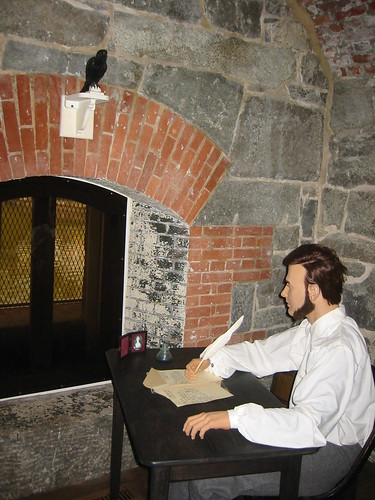The slop of John Witing's first produced play, when Tennents gave it the full Haymarket treatment in 1951, is one of the mysteries of post-war theatre history. You can understand audiences then, and now, having trouble with Saint's Day and Whiting's other dense-textured work.
But A Penny for a Song, quite apart from its beautifully-shaped plot, seems exactly in tune with the carefree spirit of the Festival of Britain and has much in common with the then immensely fashionable seasonal comedies of Christopher Fry. It is like the work of a Fry who was putting his talent into character and comic development instead of fancy versification.
Its subsequent neglect is another mystery. The RSC gave it a major revival in 1962 with ill-advised socially conscious revisions by Whiting which may have undermined its subsequent chances. But here, at last, is a splendid version of the original text, at once sumptuous and delicate, which with luck may launch it into its rightful place in the repertory.
Prompted by Carola Oman's Britain Against Napoleon, the comedy examines the nation's preparations for a French invasion from the viewpoint of a Dorset Garden owned by Sir Timothy Bell-boys. permanently stationed on top of a tree, spyglass at the ready, is his servant Humpage, keeping a look-out for the foal.
Simultaneously Humpage is under orders from Timothy's brother, Lamprett, to scan the horizon for fires. One brother is obsessed by the national emergency; to the other, it is of no importance compared with the chance of getting his private fire engine into action. Cheated out of command of the local defence force by a fiery stranger from Somerset, Timothy hatches the plan of dressing up as Napoleon and ordering the invading army home, aided by a French phrase book.
Standing aloof from these contestants is Timothy's friend, Hallam, a London dandy who observes the frenzy with ironic amusement, sometimes joining in like a grown-up at a children's party: and to whom the sight of two lovers, Lamprett's daughter and a blind soldier who wanders into the garden, is as much a useful game as the routines with fire engines, muskets and imperial uniforms.
Whiting spends the first act winding all this up and then discharges it in a second act as brilliantly constructed as Chaucer's Miller's Tale. In a marvellous chain of farcical mistakes, Timothy is taken for the emperor by the local volunteers and descends in a balloon straight down a well from which he is detonated across the Dorset countryside; while Lamprett is simultaneously doing his bit by roaming the district in a bronze helmet extinquishing signal fires.
Spectacular as these effects are (and Howard Davies's production skimps nothing), the comedy tells just as much in Whiting's handling of such trivia as the fate of the local parson's bag of biscuits, or the sight of two cannon balls slowly rolling into the garden. ('Shut the gate,' snaps Lamprett's wife at this little irritation).
In spite of its farcical mechanics, this is pre-eminently a play of atmosphere. Most obviously, it proceeds through a combative day to a peaceful cricket match and the melancholy ascent of the evening star. But even at the height of the invasion scare it is totally lacking in real violence. Most unusually, the characters are implacable obsessives (like Jonson's humour-driven monsters) who are always gentle.
When Lamprett instructs the vagabond's boy companion in fire-fighting, he addresses him as an equal. When Timothy and Lamprett, dressed for battle, confront each other like the enraged Dum and Dee, there is no hiding their fraternal affection. It is only in its treatment of the love affair that the piece becomes mawkish.
The whole experience of the play is like wandering into a magical bit of England to which no one author can lay claim. There are echoes of Peacock. But if there is any one master source it is Love's Labour's Lost, with the figures in Whiting's garden casting the shadows of Armado, Dull, and Moth.
Set within the womb-like curves of Bob Crowley's leaf-strewn Regency set, Mr Davies's production maintains a perfectly judged balance between panic-stricken action and atmospheric calm. Of the three fanatics, Brian Cox's Timothy and Ian McNeice's Lamprett are believable as brothers; bawling their commands at the stoical Humpage (David Bradley), and throwing their large well-nourished bodies into unaccustomed activities. Copyright (C) The Times, 1986
Source Citation
"Arts (Theatre): In tune with a carefree spirit; Review of 'A Penny for A Song' at the Barbican." Times [London, England] 18 Dec. 1986. Academic OneFile. Web. 24 Dec. 2009.
Gale Document Number:CJ117797685

Thursday, December 24, 2009
Arts (Theatre): In tune with a carefree spirit; Review of 'A Penny forA Song' at the Barbican.
Labels:
write
Subscribe to:
Post Comments (Atom)


No comments:
Post a Comment